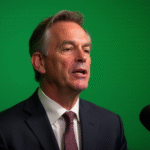Introduction
The Mexican government, led by President Claudia Sheinbaum Pardo, has established the Presidential Commission for Electoral Reform. This new body aims to design a legislative overhaul to modernize the country’s electoral system. However, experts argue that this move is a strategy to legitimize a pre-determined and regressive reform.
Commission’s Mandate
The commission, headed by Pablo Gómez Álvarez, former head of the Financial Intelligence Unit (UIF), has two primary tasks: conduct a comprehensive analysis of the electoral model and party system, and propose a reform that prioritizes democracy and the people.
Gómez Álvarez’s Background
Gómez Álvarez, known for his radical stance and history of confrontation with electoral authorities, is seen as a signal that the government intends to implement the hardest proposals from Andrés Manuel López Obrador’s “Plan A” and “B.” These plans aim to dismantle the electoral arbiter.
Experts’ Concerns
Specialists consulted by El Economista agree that the commission’s creation does not indicate an open or pluralistic initiative.
Laboratory Electoral Director’s Perspective
Arturo Espinosa Silis, director of the Laboratorio Electoral, warns that without minimal consensus conditions, any reform will be stillborn, only generating instability and distrust in the electoral system. He believes Morena is aware of this and does not benefit from it.
Ex-INE Concejo Member’s Criticism
Marco Baños, a former INE consejo member, expresses concern over aspects of the proposed reform, such as eliminating Local Public Elections Organisms (Oples), concentrating elections in a single entity, and abolishing proportional representation as it currently exists.
Ex-IFE Consejo Member’s Analysis
Luis Carlos Ugalde, a former IFE consejo member, states that it’s too early to determine the reform’s scope. However, Gómez’s appointment, known for radical proposals, signals continuity with obradorismo’s most extreme ideas.
Potential Consequences
Ugalde highlights three severe consequences of a reform without nuances:
- Electing INE council members through popular vote will politicize them, decrease their experience, and make them vulnerable to capture.
- Dismantling the INE will lower election quality and integrity.
- Eliminating proportional representation will reduce Congress plurality.
Key Questions and Answers
- What is the purpose of the new Commission for Electoral Reform? The commission aims to modernize Mexico’s electoral system through a legislative overhaul.
- Who leads the commission, and what are his views? Pablo Gómez Álvarez leads the commission. He is known for his radical stance and history of confrontation with electoral authorities.
- What are experts’ concerns about the proposed reform? Experts worry about aspects such as eliminating Local Public Elections Organisms, concentrating elections in a single entity, and abolishing proportional representation.
- What are the potential consequences of a reform without nuances? Potential consequences include politicizing INE council members, lowering election quality and integrity, and reducing Congress plurality.






